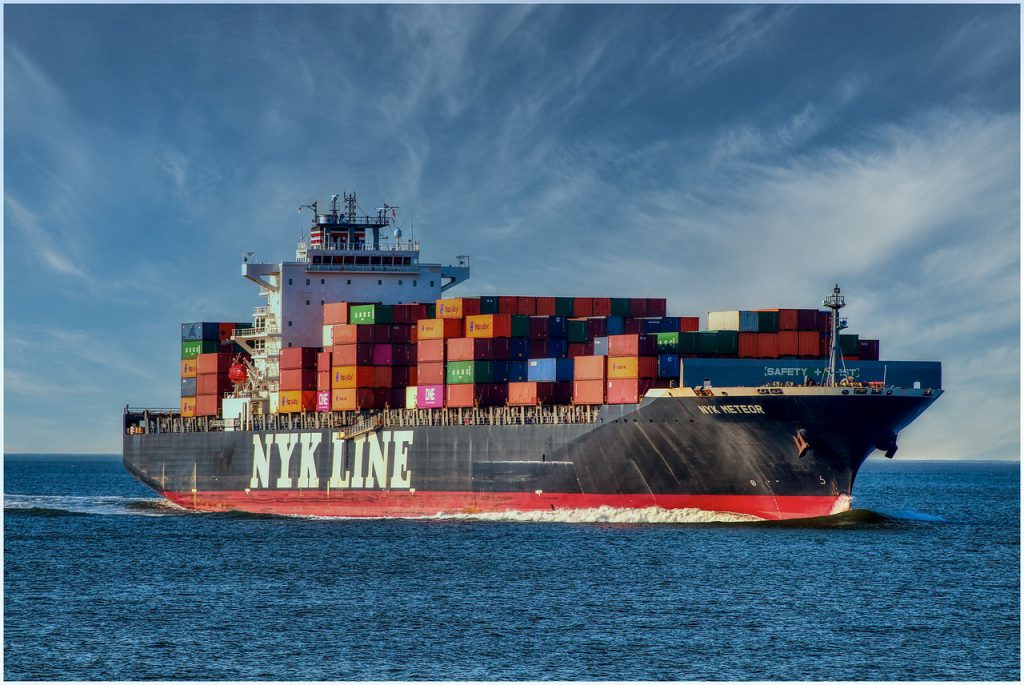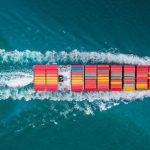Introduction 🚢
Global trade relies heavily on maritime transportation, with cargo ships transporting billions of goods across oceans. Ensuring the efficient and secure movement of cargo is crucial, and technology plays a key role in this process. One such technology is Radio Frequency Identification (RFID)—a wireless system that uses electromagnetic fields to automatically identify and track objects. In the maritime industry, RFID is transforming cargo tracking by enhancing efficiency, security, and real-time visibility. This article explores how RFID works, its applications in marine cargo tracking, and its benefits and challenges.
What is RFID? 📡
RFID stands for Radio Frequency Identification, a technology that uses radio waves to wirelessly transfer data between a reader and a tag attached to an object. RFID systems consist of three main components:
- RFID Tag 🏷️: A small electronic device containing a microchip and antenna. Tags can be passive (powered by the reader’s signal) or active (with their own power source).
- RFID Reader 📶: A device that emits radio waves and captures data from RFID tags within its range.
- Backend System 💻: Software that processes and stores the collected data, often integrated with supply chain management systems.
Unlike traditional barcode systems, RFID doesn’t require line-of-sight, enabling faster and more accurate data collection even in harsh maritime environments.
How RFID is Used in Marine Cargo Tracking ⚓
RFID technology plays a crucial role in tracking cargo containers from ports of origin to their final destinations. Here’s how it works:
-
Container Identification and Tracking 🧩: RFID tags attached to cargo containers store information such as container ID, contents, destination, and shipping history. As containers move through ports and checkpoints, RFID readers automatically capture this data, ensuring accurate and real-time tracking.
-
Port Operations Management ⚙️: RFID streamlines port operations by automating container check-in, check-out, and location tracking. This reduces manual processes, minimizes human error, and accelerates cargo handling, leading to faster turnaround times.
-
Real-Time Location Tracking 🌍: By integrating RFID with GPS and IoT platforms, shipping companies can monitor cargo locations in real time, enhancing supply chain visibility and reducing the risk of cargo loss or theft.
-
Customs and Security Compliance 🛡️: RFID enables faster customs clearance by providing authorities with instant access to cargo information. It also enhances security by detecting unauthorized container access or tampering.
-
Temperature and Condition Monitoring ❄️🔥: For perishable goods, RFID sensors can monitor environmental conditions such as temperature, humidity, and pressure, ensuring cargo remains within safe limits throughout transit.
Benefits of Using RFID in Marine Cargo Tracking ✅
-
Enhanced Efficiency and Productivity ⚡: RFID automates data collection and reduces manual processes, speeding up cargo handling and improving port throughput.
-
Real-Time Visibility and Transparency 👁️: Shipping companies, port operators, and customers can track cargo locations and statuses in real time, enabling better supply chain management and reducing delays.
-
Improved Security and Compliance 🔒: RFID enhances cargo security by detecting unauthorized access and helping ensure compliance with international regulations, reducing the risk of theft, smuggling, and customs violations.
-
Reduced Operational Costs 💰: By minimizing manual labor and improving cargo tracking accuracy, RFID reduces labor costs, cargo losses, and delays, leading to significant cost savings.
-
Sustainability and Environmental Impact 🌱: RFID supports sustainable shipping by optimizing cargo movement, reducing fuel consumption, and minimizing paper-based processes.
Real-World Examples of RFID in Marine Cargo Tracking 🌍
-
Port of Rotterdam, Netherlands ⚓: One of the world’s largest ports, Rotterdam uses RFID to track cargo containers and improve port efficiency, reducing congestion and turnaround times.
-
Maersk Line 🚢: The global shipping giant integrates RFID with IoT and blockchain technology to enhance cargo visibility and ensure secure and transparent shipping processes.
-
U.S. Customs and Border Protection (CBP) 🛂: RFID is used to monitor cargo entering and leaving the U.S., ensuring compliance with trade regulations and improving border security.
Challenges and Limitations of RFID in Marine Environments ⚖️
Despite its benefits, implementing RFID in marine cargo tracking presents several challenges:
- Harsh Environmental Conditions 🌊: RFID tags must withstand extreme temperatures, humidity, saltwater exposure, and physical impacts during maritime transit.
- Signal Interference 📡: Metal containers and ship structures can interfere with RFID signals, reducing reading accuracy and range.
- Implementation Costs 💸: Initial costs for RFID infrastructure, including tags, readers, and backend systems, can be high, particularly for smaller shipping companies.
- Data Privacy and Security 🔐: Ensuring the security of RFID data is crucial to prevent unauthorized access and protect sensitive cargo information.
- Global Standardization 🌐: The lack of universal RFID standards can complicate interoperability between different ports, shipping lines, and customs authorities.
Future Trends in Marine RFID Technology 🚀
The future of RFID in marine cargo tracking is promising, with advancements in technology driving greater efficiency and innovation. Key trends include:
- Integration with IoT and Blockchain 🧠: Combining RFID with IoT sensors and blockchain platforms will enable real-time cargo monitoring, enhanced supply chain transparency, and secure data sharing.
- AI and Predictive Analytics 📊: Artificial intelligence will analyze RFID data to predict cargo delays, optimize shipping routes, and prevent equipment failures.
- 5G Connectivity 📶: The rollout of 5G networks will enhance RFID communication speed and reliability, enabling faster and more reliable data transmission.
- Sustainable RFID Tags 🌱: Advances in biodegradable and energy-efficient RFID tags will support environmentally friendly shipping practices.
Conclusion 🌊📦📡
Marine RFID technology is revolutionizing cargo tracking by enhancing efficiency, security, and real-time visibility throughout the global supply chain. By automating cargo identification, streamlining port operations, and providing real-time location tracking, RFID enables shipping companies to reduce costs, improve delivery times, and ensure cargo security. While challenges such as environmental conditions and implementation costs remain, advancements in IoT, AI, and 5G are driving the future of marine RFID technology, paving the way for smarter, more sustainable, and more connected maritime transportation. As global trade continues to grow, RFID will play a critical role in ensuring the efficient and secure movement of goods across the world’s oceans. 🚢💡📡


